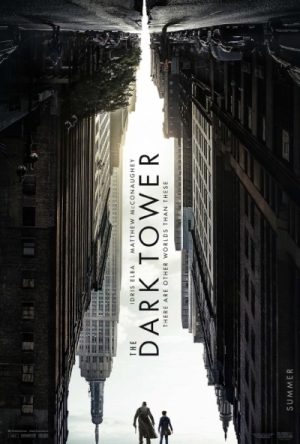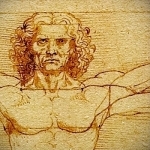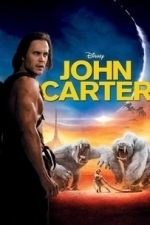Gareth von Kallenbach (980 KP) rated The Dark Tower (2017) in Movies
Jun 19, 2019
The big issue is that King often creates detailed characters with complex backstories and puts then in fully developed worlds that despite their supernatural nature, often are easy for readers to relate to.
Also as any reader of his books knows, King is not one to spare the paper and his books can be very lengthy offerings. This is an issue for Hollywood as they are forced to condense a 400-800 page plus story in many cases to fewer than two hours of screen time. The solution has been to try television movies such as “The Langoliers”, “The Tommyknockers”, “The Stand”, and “It”. The problem with this format is that while spreading the story over multiple nights allows more time for the story, they gore and adult content which is often the core of the story has to be greatly watered down.
Which brings us to “The Dark Tower”, an adaptation of King’s largest offering as the series covers seven books and a novella, not to mention a Prequel comic and more. The series rolled out from 1982-2004 with King often saying that he might never finish the series. Fortunately for fans he released three books from 2003-2004 and was able to declare the story told.
The story tells of a world like ours, but different that has “moved on”. It is a dying world where Roland (Idris Elba), is pursuing a wizard named Walter (Matthew McConaughey), who is responsible for laying waste the world and killing all that come into Roland’s life. The books follow his unrelenting chase of The Man in Black over countless years and how he has become a cold and driven individual who thinks nothing of using people to get his revenge.
Roland is the last of the “Gunslingers”, a Knight like group who protected the world and who used guns that were rare in their world to keep the peace. Roland is highly skilled and unlike his now dead companions, is impervious to the magic of Walter which has allowed him to remain alive and continue his quest.
The Man in Black is fixated on destroying the Dark Tower, which protects the many worlds in the universe from the outside evils that look to destroy it. Along with a young boy from Earth named Jake (Tom Taylor), Roland must find a way to save the universe and exact his revenge.
The film keeps the conflict between Roland and The Man in Black but greatly condenses the story as it includes references to things in the first two books but omits much of the backstory and plot of the novels to tell what I would call a story that was inspired by, but not based on the books.
This is at the core the biggest issue with the film. I have read the books and while I wanted an adaptation that was closer to them, I did find myself enjoying the film more than I expected to. The leads were very good and even though they had a very watered down script to work with, they did a good job and the finale does have some nice visuals and action to it.
People I know who have read the books have naturally been very disappointed with the film but those who have not read the books have mentioned that they enjoyed the film and accepted it as a fun bit of escapist adventure.
There has been talk of a television series that would focus more on the third book onward which hopefully would include how Roland gained new followers from our world who were trained to be future Gunslingers. That remains to be seen as the success of the film will likely hold the key. I hope we do get to see it as there are countless stories and characters yet to tell in this universe and I think fans deserve to see them as King wrote them.
http://sknr.net/2017/08/03/the-dark-tower/
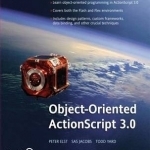
Object-oriented Actionscript 3.0
Todd Yard, Peter Elst and Sas Jacobs
Book
* Learn object-oriented programming in ActionScript 3.0* Covers both the Flash and Flex...
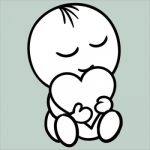
The Wonder Weeks - Milestones
Health & Fitness and Lifestyle
App
Sibling app to the Number one best sold Parenting app: The Wonder Weeks The Wonder Weeks Milestone...
The Patient Centered Value System: Transforming Healthcare Through Co-Design
Anthony M. DiGioia and Eve Shapiro
Book
Imagine: You are a hospital Chief Executive Officer, Chief Financial Officer, medical or nursing...
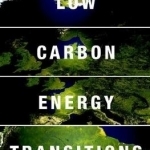
Low Carbon Energy Transitions: Turning Points in National Policy and Innovation
Book
The world at large is wrestling with important energy choices. There is a strong sense today that we...
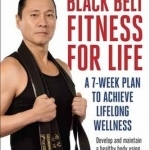
Black Belt Fitness for Life: A 7-Week Plan to Achieve Lifelong Wellness
Tae Sun Kang and Michael Imperioli
Book
"There's something to martial arts and especially the way Grandmaster Kang teaches it that addresses...
Darren (1599 KP) rated Jarhead (2005) in Movies
Jul 2, 2019
When war breaks out the marines are set to the middle east, where they must adapt to the desert condition before going into to conflict, this will test their psychical shape and their mental health as the waiting is just part of the sniper’s game.
Thoughts on Jarhead
Characters – Anthony Swofford who wrote the book the film is based on, we see how he joined the military out of college and struggled at first through the training regime. Anthony soon discovered he was ready for this life as a sniper, but his time in the gulf sees him start to lose his mind. Alan Troy becomes the best friend of Anthony’s and his spotter, he seems to be the most level-headed marine in the unit. Staff Sgt Sykes is the one running the sniper unit, he demands respect and isn’t afraid to put the marines in their place.
Performances – Jake Gyllenhaal is fantastic in the leading role, he shows everyone how he can play the calm soldier, the crazed soldier and the broken man through the scenes of the film which only increase what he is dealing with. Peter Sarsgaard give us a brilliant supporting performance which shows how the fear can be kept inside a calm outer layer. Jamie Foxx brings us the energy of a career military man.
Story – The story follows the experiences of one soldier that joins the marines before being put in the sniper division when war breaks out, he must adapt to life in the desert during the waiting game before the conflict. This story does show us just how difficult adapting to war can be for the soldiers and just how the war can be fought without needing to fire a weapon. It shows us just how the mindset can change over a set amount of time which will see the soldiers make decisions they wouldn’t normally consider making. This does focus on the idea that the main soldier Anthony never truly feels like he was part of the war followed by the effects of returning back from war can have on the soldiers who have returned.
Biopic/War – This film follows Anthony’s experience with war, it shows how war isn’t everything he was planning and how his mindset wasn’t in the right place for parts of his experience. The war side of the film shows us just how different war has become over the years, where the ground soldiers are not as required as once before.
Settings – The film has some wonderful uses of settings with the march sequence showing us just how open the area in question will be for the soldiers.
Scene of the Movie – Returning home.
That Moment That Annoyed Me – Slow start.
Final Thoughts – This is a fascinating look at the modern war effort, how the biggest problem is now waiting for the war to begin rather than the fighting.
Overall: Modern war time.
Gareth von Kallenbach (980 KP) rated John Carter (2012) in Movies
Aug 7, 2019
The film is based on the first book of eleven, a series that began in 1911 and ran through 1964 when the last book was published posthumously. John Carter stars Tylor Kitsch as the title character, a bitter Civil War veteran who, despite an accomplished service record, no longer wants anything to do with the military. Instead he is fixated upon finding a cave of gold.
Despite the fact that he served for the Confederacy, John Carter draws the attention of the U.S. Cavalry whose leader is anxious to recruit an officer of Carter’s skills and experience to aid them in their skirmishes with the Apache tribes. No longer willing to fight or get involved, Carter declines the offer but soon finds himself caught in the middle of an unplanned battle between both sides. As he attempts to find shelter for himself and a wounded officer, Carter accidentally stumbles upon the cave of gold he was seeking.
Carter’s surprise soon turns to shock when he’s attacked by a mysterious individual who presses a glowing amulet in his hand and utters a phrase that transports John Carter instantly to the planet Mars. Of course, Carter at first has no idea where he is but soon realizes that he has incredible leaping abilities due to the lower gravity of the planet.
Shortly after his arrival he gains the attention of Tars Tarkas (Willem Dafoe), the chief of a race of tall, skinny, four armed alien warriors. At first intrigued by Carter, Tarkas and his people become divided over what to do with the new arrival. This becomes further complicated when airships arrive and begin a massive gunbattle. Carter immediately leaps into action with his newfound ability which quickly gains the attention of Dejah Thoris (Lynn Collins), princess of the city of Helium.
It is learned that Princess Dejah is being forced to marry an evil warlord who possesses an awesome destructive ability and is using it to subjugate all those he encounters. Desperate to save their city, the princess is offered up to appease the warlord. Naturally this does not sit well with the free-spirited and feisty princess and before long she and John Carter find themselves united in their quest to save Helium. Despite his reluctance to get involved and fight, Carter realizes the princess may be his only way to get home.
A stranger in a strange land, with danger all around him, John Carter takes his audience on an epic adventure. Despite having little star power, the movie works exceptionally well with amazing special effects. The CGI used to create the various alien characters infuses them with personality and vitality rarely seen in artificially created characters. The film is visually spectacular from the legions of aliens locked in combat, to the stark splendor of the planet and its inhabitants.
Even though the film was presented in converted 3-D which, as many of you will know has long been a very touchy subject with me, the final product was actually better than most conversions. While it was nowhere near the quality of films shot in 3-D, it nonetheless offered an immersive quality to epic battle scenes and did not rely on the gimmicky trick of trying to make things pop out of the screen in order to sell the film.
Kitsch does a great job handling the action of the film and manages to interact with his CGI costars in a believable enough manner to establish as much chemistry with them as he did with the flesh and blood Collins. Although some moments of the film drag, it does have enough action to sustain the nearly two-hour runtime with a touch of humor and romance thrown in for good measure.
I first became aware of the film a year ago at the D23 Expo when Disney showed a few clips and had Kitsch, Collins and Dafoeon hand to promote the pending release. While intriguing, I did not see anything that really made the film stand out as a must-see. I am very happy to say that upon seeing the completed film, the scenes that were shown to us not only had even greater effects in the finished product but were also much more entertaining and dynamic once shown within the full context of the story line.
Director Andrew Stanton, who has made a name for himself with his animated films at Pixar, skillfully blends live-action and CGI to create a very energetic and enjoyable action-adventure film that was a very pleasant surprise.
While the acting, character development, and plot are nothing spectacular in and of themselves, they combined well and set the stage effectively for what should be a series of John Carter films in the future.

Thinking Trademarks, Symbols and Logotypes: Design by Thinking
Book
This volume profiles 150 trademarks, symbols and logotypes from around the world giving examples in...
